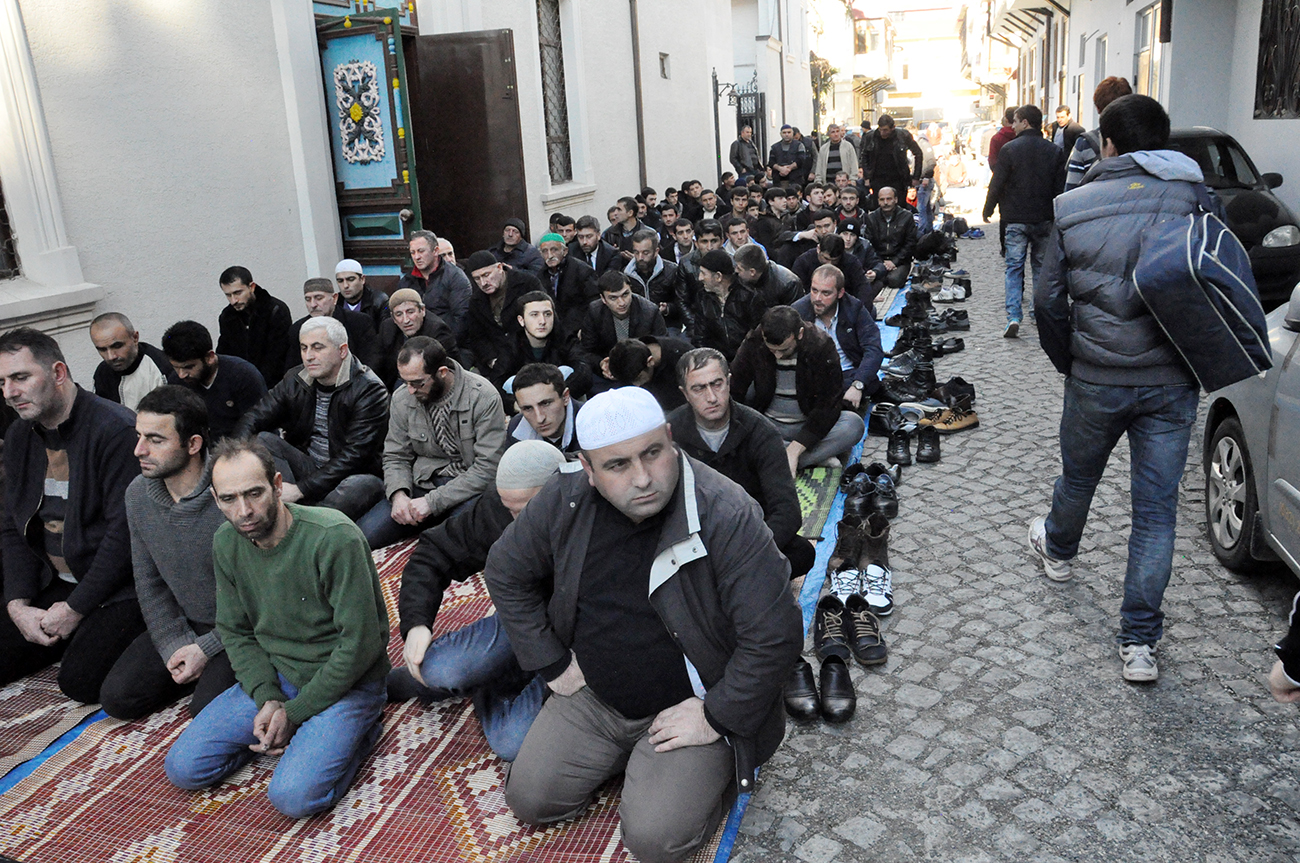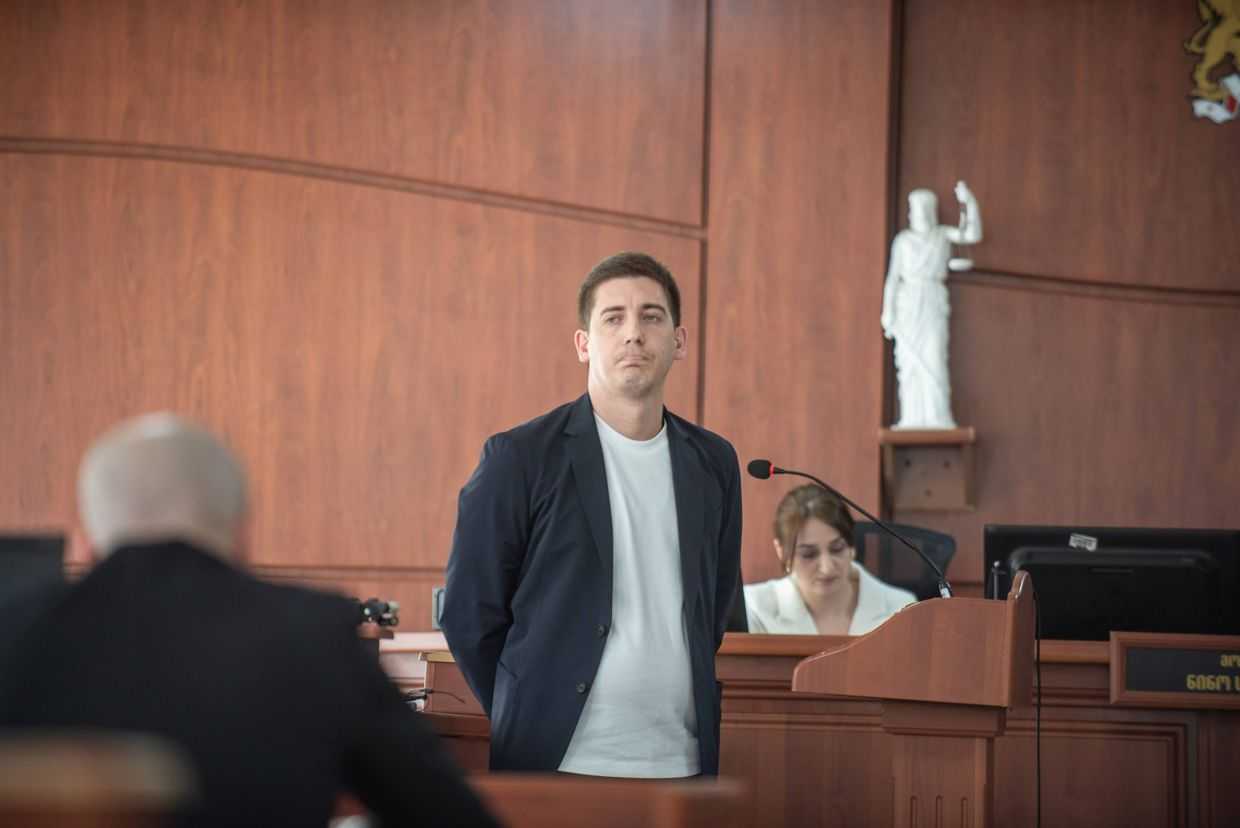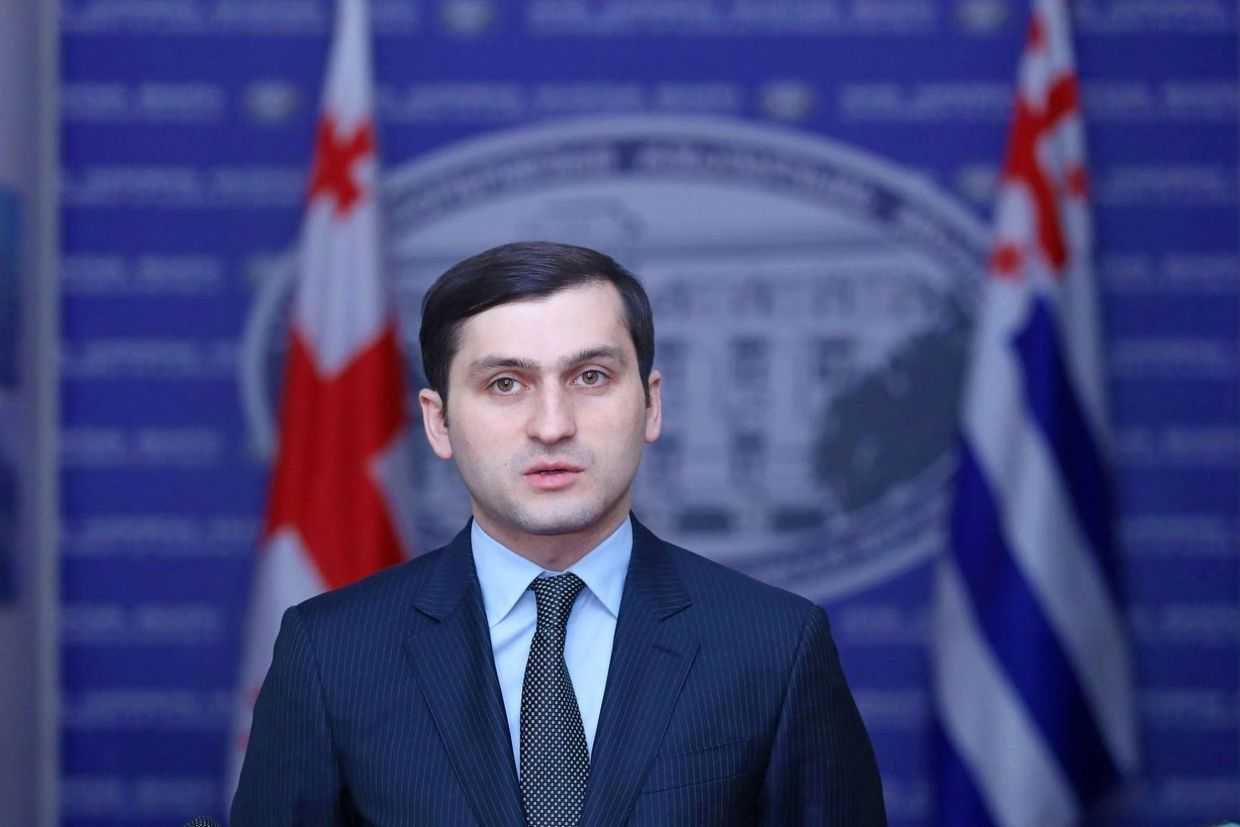

A court in the city of Batumi, on Georgia’s Black Sea coast, has begun considering a lawsuit brought by a group of Muslims against the city authorities over their refusal to grant a construction permit for a mosque.
Proceedings at the Batumi City Court commenced on Wednesday after negotiations between the local Muslim community and city officials broke down.
The Mosque Construction Fund first addressed the court in June 2017, after their application for a construction permit was rejected.
The Batumi Mayor’s Office argued in court that the plot of land the Muslim group had bought to construct the mosque was located in a high-density residential zone, and therefore not suitable for a religious building. There are several churches already in the area.
The appeal, filed by Georgian rights groups the Human Rights Education and Monitoring Centre (EMC) and the Tolerance and Diversity Institute on behalf of the local Muslim community, claimed Muslims were being discriminated against on religious grounds.
On 10 April, Vakhtang Gedenidze, a lawyer for the Batumi Mayor’s Office, called for further negotiations with the Muslim community in an attempt to delay the court hearings. He reiterated a previous statement by Batumi Mayor Lasha Komakhidze that ‘there is still room for negotiations’.
Komakhidze pledged to meet with the Muslim community over a year ago, but no meeting followed.
The court will reconvene on 22 May.
Why negotiations failed
For over a decade, Muslims in Batumi, the capital of the Autonomous Republic of Adjara, have demanded that land is allocated to construct another mosque in the city.
They say the only mosque currently operating in the city, Orta, is too small to accommodate the local Muslim population, and that every week during Friday prayers, worshippers are forced to stand outside.
Despite repeated promises from the local and central governments, the problem has remained unresolved.
In 2016, the Muslim community formed an initiative group that collected money and bought a plot of land to construct a second mosque. However, Batumi City Hall rejected their application for a construction permit, arguing that the area was a high-density residential zone and not suitable for a religious building.
The Mayor’s Office suggested the land be transferred to the state-sponsored Administration of All Muslims of Georgia. Komakhidze also demanded the group withdraw their appeal from court, after which he said the permit would be issued.
However, the initiative group disagreed, claiming that distrust in the community towards the Administration of All Muslims of Georgia was a result of a state policy that ‘uses the organisation as a tool’.
[Read more about Batumi Mayor’s deal on OC Media: Batumi Muslims reject ‘discriminatory’ deal for stalled mosque construction]
Tariel Nakaidze, the head of the Mosque Construction Fund in Batumi, which collected the funds to buy the land, told OC Media that this might not be the last intervention by the government.
‘We are not sure they won’t intervene again. There’s a risk. Secondly, [not only the Administration of All Muslims but] every organisation is legally allowed to construct and so are we. Therefore, we are continuing the legal fight’, Naikaidze said.
He added that they were open to negotiations as long as the Mayor’s Office offered something rational in return.
Tamta Mikeladze, a lawyer at EMC who is representing the mosque fund in court, told OC Media that the arguments their opponents made in court were abstract.
‘The Muslim community doesn’t have high expectations for the negotiations. At the trial, the representative of the Mayor spoke about a space for negotiation, which was totally abstract. He didn’t even voice their conditions’, Mikeladze said.
[Read on OC Media: Opinion | Georgia’s Muslim authority should represent the interests of Georgia’s Muslims, not the government’s]
Unresolved religious conflicts
The case in Batumi is one of several recent attempts by Muslim communities in Georgia to seek justice against perceived discrimination.
According to the Public Defender’s 2017 report, violence against religious minorities and unsolved criminal cases into this violence is a major problem in Georgia. The report cited several high-profile cases of discrimination against Muslims.
[Read about another court case involving Adjara’s Muslims: Georgian court orders authorities to provide water connection for Kobuleti Muslim school]
In one case, three Muslims were injured in a brawl in the village of Adigeni in southern Georgia in February 2016. The conflict arose after the local Muslim population appealed to the municipality to allocate land for a separate cemetery.
An investigation into the case was launched for petty hooliganism but was closed without identifying the case as an example of discrimination.
In another case, Vagip Akperov, the former Sheikh of the Georgian Muslims’ Union, claimed he was blackmailed into resigning in December 2013.
Akperov said he was summoned to the Ministry of Internal Affairs where he was forced to write a letter of resignation under threat of having information about his private life released.
An investigation by the Prosecutor’s Office into the allegations is ongoing.
[Read more about unresolved religious conflicts in Georgia on OC Media: Ombudsman: Religious conflicts still unresolved in Georgia]








